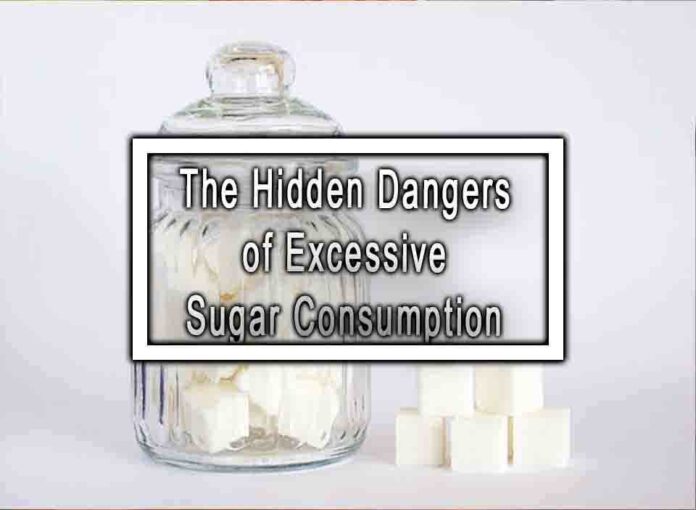Excessive sugar consumption can have a range of negative effects on health. While sugar is a natural part of many foods, consuming too much added sugar, especially in the form of sugary beverages, processed snacks, and desserts, can lead to various health risks. Here are some of the hidden dangers of excessive sugar consumption:
1. Weight Gain and Obesity:
- High sugar intake can contribute to weight gain and obesity. Sugary foods and beverages are calorie-dense and can lead to an excessive calorie intake, which can lead to obesity over time.
2. Increased Risk of Type 2 Diabetes:
- Consuming too much sugar can lead to insulin resistance, a condition where cells become less responsive to insulin. This can increase the risk of developing type 2 diabetes.
3. Heart Disease:
- Excessive sugar intake is linked to an increased risk of heart disease. High sugar diets can lead to higher levels of triglycerides, lower levels of HDL (good) cholesterol, and increased inflammation, all of which are risk factors for heart disease.
4. Tooth Decay and Cavities:
- Sugar is a major contributor to tooth decay and cavities. Bacteria in the mouth feed on sugar and produce acid that can erode tooth enamel, leading to cavities.

5. Increased Risk of Chronic Diseases:
- Excessive sugar consumption has been associated with an increased risk of various chronic diseases, including non-alcoholic fatty liver disease, certain types of cancer, and metabolic syndrome.
6. Unstable Energy Levels:
- Foods high in added sugars can cause rapid spikes and crashes in blood sugar levels, leading to feelings of fatigue and low energy.
7. Addiction-Like Behavior:
- Sugar has been shown to activate reward centers in the brain similar to addictive substances. This can lead to overconsumption and difficulty controlling sugar intake.
8. Negative Impact on Mental Health:
- Some research suggests a link between high sugar diets and an increased risk of depression, anxiety, and other mental health issues.
9. Skin Issues:
- High sugar intake can contribute to skin problems such as acne and premature aging due to its potential impact on inflammation and collagen production.
10. Reduced Nutritional Intake:
Foods high in added sugars often replace nutrient-dense foods in the diet, leading to a reduced intake of essential vitamins, minerals, and other nutrients.
11. Increased Risk of Gastrointestinal Issues:
A diet high in sugar can disrupt the balance of gut bacteria, potentially leading to gastrointestinal issues and discomfort.
To reduce the negative effects of excessive sugar consumption, it’s important to be mindful of added sugars in processed foods and beverages. Reading nutrition labels and choosing whole, unprocessed foods can help you make healthier choices. The World Health Organization recommends limiting added sugar intake to less than 10% of total daily calories, which is roughly 25 grams (about 6 teaspoons) for an adult consuming 2,000 calories a day.












